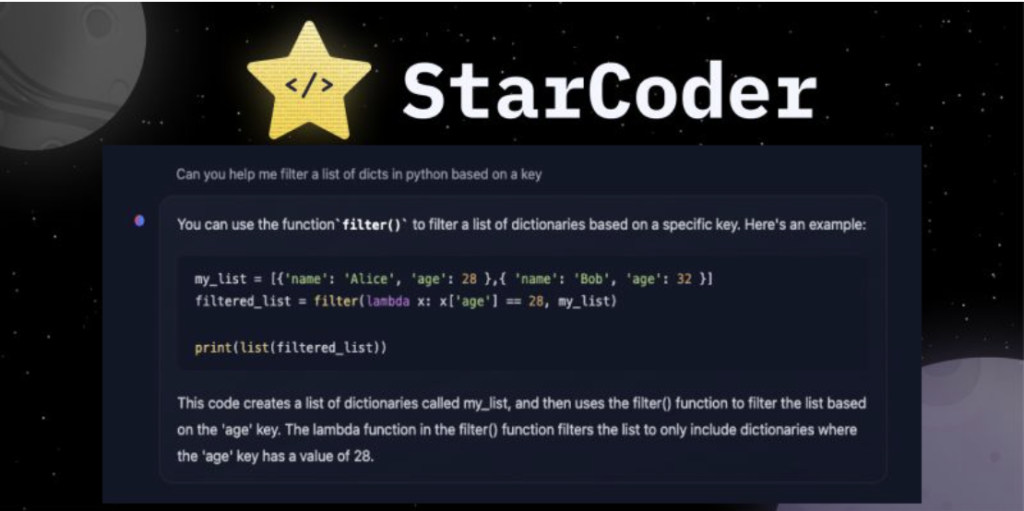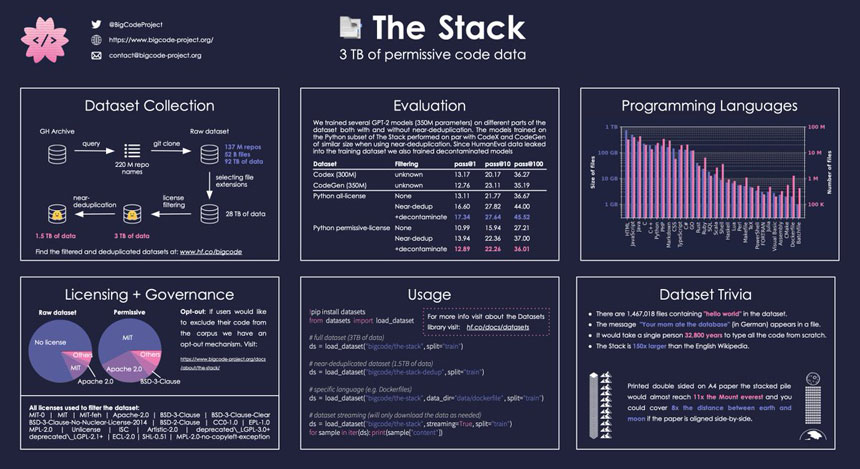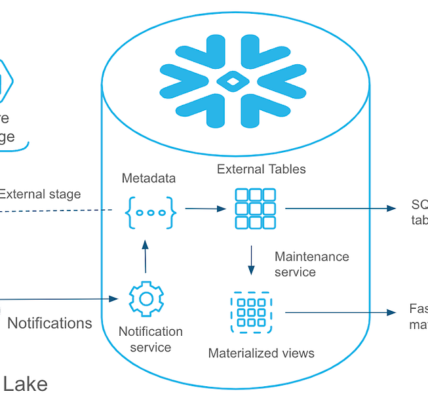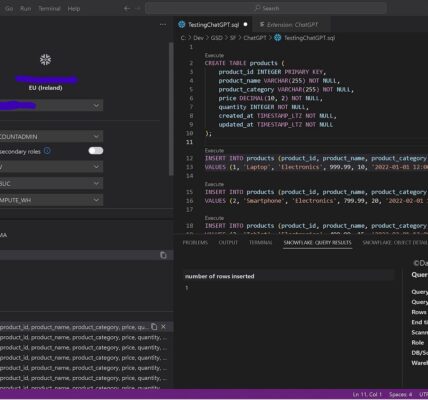The world of software development is rapidly evolving, and with it comes the rise of artificial intelligence (AI) tools designed to streamline the coding process. Two prominent players in this arena are StarCoder and Copilot, both utilizing large language models (LLMs) to assist developers in various ways. This article delves into a comprehensive comparison of these AI code assistants, exploring their functionalities, strengths, weaknesses, and suitability for different development needs.
Core Functionalities
- StarCoder: StarCoder positions itself as a collaborative coding assistant. It leverages its LLM capabilities to analyze existing code, understand project context, and facilitate discussions around code improvements. StarCoder can suggest alternative code implementations, potential optimizations, and highlight areas for code review. Additionally, it supports a wider range of programming languages compared to Copilot.

- Copilot: Copilot leans heavily on code generation. It analyzes the developer’s current code and context to suggest relevant code snippets, function calls, and even complete boilerplate code. This approach aims to expedite the coding process by automating repetitive tasks and providing suggestions tailored to the specific project.

Code Examples:
Here’s a glimpse into how StarCoder and Copilot might approach the same task:
Scenario: Implementing a simple function to calculate the factorial of a number in Python.
- StarCoder: StarCoder might analyze existing code within the project and suggest alternative implementations for the factorial function, highlighting potential optimizations like using recursion or dynamic programming. It could also prompt discussions about error handling or edge cases.
Python
def factorial(n): # Existing code
# StarCoder might suggest alternative implementations here
# Example: Recursive implementation
if n == 0:
return 1
else:
return n * factorial(n-1)
# Example: Dynamic programming implementation
dp = [0] * (n + 1)
dp[0] = 1
for i in range(1, n + 1):
dp[i] = i * dp[i - 1]
return dp[n]
- Copilot: Copilot would likely focus on code generation. Based on the context and function name “factorial,” it might directly suggest the implementation code:
Python
def factorial(n):
if n == 0:
return 1
else:
return n * factorial(n-1)
Strengths and Weaknesses
- StarCoder:
- Strengths:
- Encourages code collaboration and review.
- Provides insights for code improvement beyond basic generation.
- Supports a broader range of programming languages.
- Open-source availability allows for customization and community contributions.
- Weaknesses:
- Code generation capabilities might be less robust compared to Copilot.
- Reliant on existing code within the project for analysis.
- User interface and integration with development environments might be less polished.
- Strengths:
- Copilot:
- Strengths:
- Powerful code generation for faster development.
- Offers suggestions directly within the code editor for seamless integration.
- Continuously learning and improving based on user interactions.
- Weaknesses:
- Limited focus on code collaboration and review.
- Suggestions might require additional scrutiny for correctness and efficiency.
- Supports a smaller set of programming languages compared to StarCoder.
- Closed-source nature restricts customization and community involvement.
- Strengths:
Data and Performance
Both StarCoder and Copilot are constantly evolving, and comprehensive performance benchmarks are a work in progress. However, some insights can be gleaned from available data and user experiences:
- Language Support: StarCoder boasts support for over 600 programming languages, while Copilot currently focuses on a more limited set of popular languages like Python, JavaScript, and Java.
- Code Generation Accuracy: User reports suggest Copilot might have a slight edge in code generation speed and accuracy. However, StarCoder can potentially offer more optimized and secure code through its focus on collaborative review.
- Open Source vs. Closed Source: StarCoder’s open-source nature allows for greater transparency and potential contributions from the developer community. Copilot’s closed-source approach offers a more polished user experience but limits customization and accessibility.
Choosing the Right Tool
The choice between StarCoder and Copilot hinges on your specific development needs and preferences. Consider these factors when making your decision:
- Development Style: If you prioritize code collaboration, discussion, and in-depth code review processes, StarCoder could be a valuable asset.
- Coding Speed: For developers seeking rapid coding through code generation and autocompletion, Copilot might offer a significant advantage.
- Choosing the Right Tool (Continued)
- Project Requirements:
- Consider the programming languages involved. If your project utilizes a niche language, StarCoder’s broader support might be essential.
- If security-critical code is involved, StarCoder’s emphasis on review can mitigate potential risks associated with automated code generation.
- Development Environment: Evaluate how well each tool integrates with your preferred development environment (IDE).
- Cost and Availability: StarCoder being open-source offers a free and accessible option, while Copilot requires a subscription through GitHub.
- The Future of AI-Powered Coding
- Both StarCoder and Copilot represent a significant leap forward in AI-powered coding assistance. As these tools mature, we can expect further advancements in:
- Code Generation Accuracy and Efficiency: Improved models with better understanding of code structure and best practices will lead to more reliable and optimized code generation.
- Context-Aware Suggestions: The ability to analyze project goals, design patterns, and specific coding styles will personalize suggestions for each developer’s workflow.
- Integration with Development Environments: Seamless integration with popular IDEs will provide a more streamlined and intuitive user experience.
- Ethical Considerations: As with any AI technology, ethical implications regarding code ownership, intellectual property, and potential biases require ongoing discourse and development.
- Conclusion
- The landscape of AI-powered coding assistance is rapidly evolving, and StarCoder and Copilot represent two prominent contenders. By understanding their strengths, weaknesses, and suitability for different development needs, you can make an informed choice to leverage the power of AI in your coding endeavors. As these tools continue to improve, the future promises a world where AI acts as a collaborator, accelerating development processes while fostering best practices in coding.
Additional Considerations:
- This article has primarily focused on StarCoder and Copilot. Other AI-powered coding assistants are emerging, offering different functionalities and features. It’s always beneficial to explore these alternatives as well.
- The field of AI for code generation is still under development. As with any new technology, user feedback and continuous improvement are crucial. Consider contributing to open-source projects like StarCoder or providing feedback to developers of closed-source tools like Copilot.
- Remember, choosing the right AI code assistant is just one aspect of a developer’s toolbox. AI can be a powerful tool, but it shouldn’t replace the critical thinking, problem-solving skills, and domain knowledge that are fundamental to successful software development.
StarCoder vs Copilot: FAQs
What are StarCoder and Copilot?
StarCoder and Copilot are AI-powered coding assistants that utilize large language models (LLMs) to aid developers in various coding tasks.
What are the core functionalities of each tool?
StarCoder: Focuses on collaborative coding, suggesting code improvements, prompting discussions, and supporting a wider range of programming languages. (Open-source)
Copilot: Leverages code generation to suggest code snippets, function calls, and complete boilerplate code, aiming to accelerate development. (Closed-source)
Choosing the Right Tool
Which tool is better for code collaboration and review?
StarCoder, with its focus on discussions and code analysis, is a valuable asset for collaborative development processes.
Which tool is faster for code generation?
Copilot might have a slight edge in generating code quickly based on user reports.
What if my project uses a niche programming language?
StarCoder’s broader language support (over 600 languages) makes it a better choice for projects outside popular languages.
Is one tool more secure for critical code?
StarCoder’s emphasis on review can help mitigate risks associated with automated code generation in security-sensitive projects.
How do they integrate with development environments?
Evaluate how each tool integrates with your preferred IDE for a smooth workflow.
Cost and Availability?
StarCoder (open-source) is free, while Copilot requires a GitHub subscription.
The Future of AI-Powered Coding
What can we expect from future iterations of these tools?
Advancements in areas like code generation accuracy, context-aware suggestions, and deeper IDE integration are on the horizon.
Are there any ethical considerations with AI coding assistants?
Yes, ownership, intellectual property, and potential biases in AI models require ongoing discussion and development.
Additional Points
Explore other emerging AI coding assistants besides StarCoder and Copilot.
User feedback is crucial for improvement in this evolving field. Consider contributing to open-source projects or providing feedback to developers.
AI is a powerful tool, but it shouldn’t replace core developer skills like problem-solving and domain knowledge.




